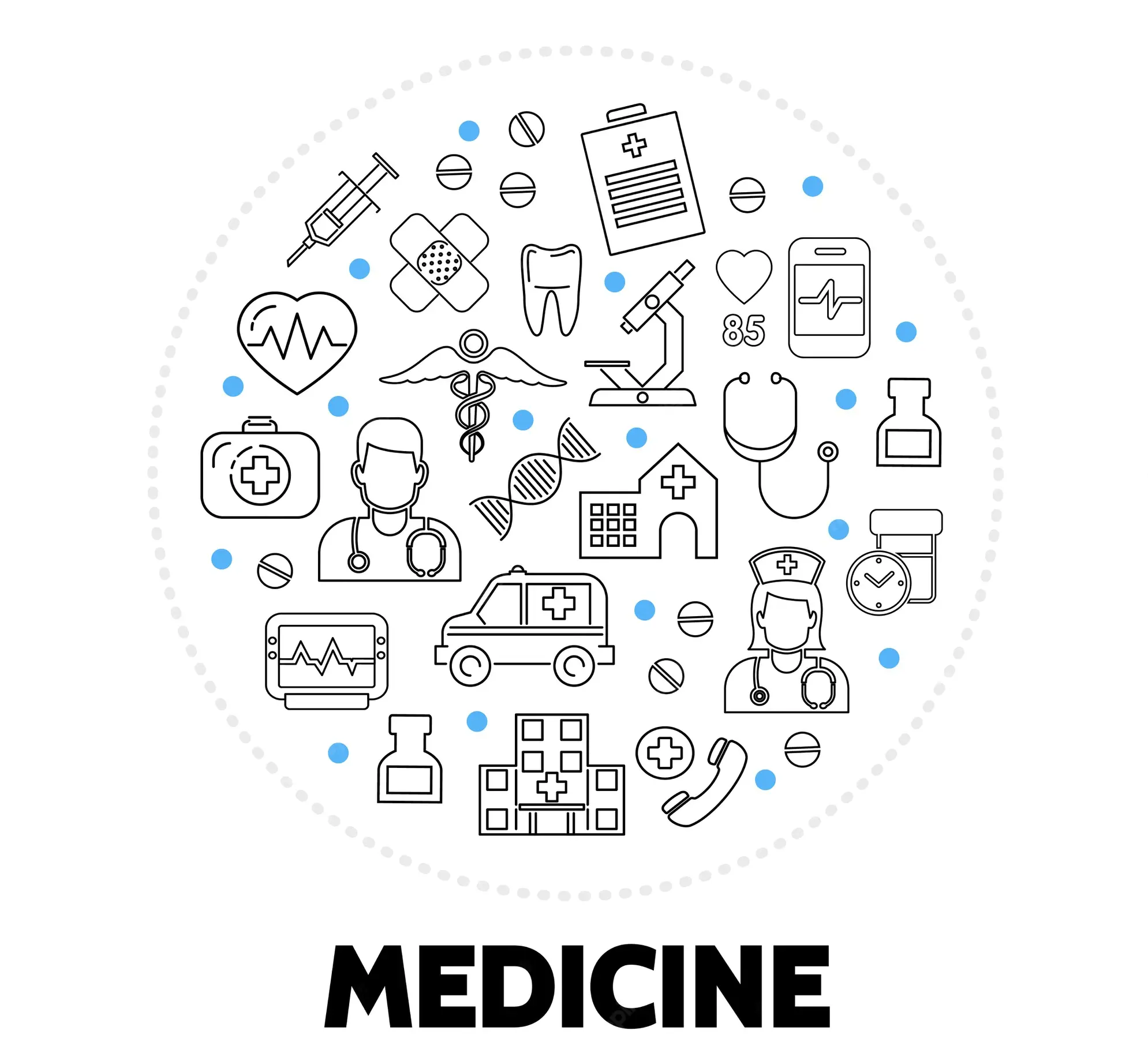Organic Chemistry Books
Fundamental university organic and inorganic chemistry ,series B
Author: Abass Olajire
School: University of Ilorin
Department: Science and Technology
Course Code: CHM112
Topics: Qualitative analysis, organic compounds, hybridization, organic acids, organic bases, isomerism, organic reactions, isomerism, hydrocarbon chemistry, aliphatic hydrocarbons, alicyclic hydrocarbons, aromatic hydrocarbons, functional group chemistry, alcohol, phenol, ethers, thiols, thioethers, halohydrocarbons, amines, ketones, aldehydes, carboxylic acids, carbohydrate chemistry, amino acids, polypeptides, proteins, lipids, inorganic chemistry, bonding, transition elements, chemical industry, pollution
Author: FO Ayinde, FOI Asubiojo
School: WAEC, JAMB & POST UTME
Department:
Course Code: CHEMISTRY
Topics: Chemistry, matter, atomic structure, periodicity, chemical bonding, descriptive chemistry, stochiometry, kinetic theory, energetics, chemical kinetics, chemical equilibrium, acid, base, salt, electrochemistry, nuclear chemistry, organic chemistry, IUPAC Nomenclature, hydrocarbons, organic families, organic giant molecules, industrial chemistry, environmental chemistry, experimental chemistry, Lamlad
Shriver & Atkin's inorganic chemistry
Author: Peter Atkins, Tina Overton, Jonathan Rourke, Mark weller, Fraser Armstrong, Michael Hagerman
School: University of Ibadan
Department: Science and Technology
Course Code: CHE126
Topics: Inorganic chemistry, atomic structure, atomic orbitals, molecular structure, bonding, Lewis structure, valence bond theory, Molecular orbital theory, ionic solids, ionic bonding, semiconduction, acid, base, Brønsted acidity, Lewis acidity, oxidation, reduction, reduction potentials, redox stability, Molecular symmetry, isomerism, coordination compounds, chirality, spectroscopy, chemical analysis, Magnetometry, periodic trends, Group 1 elements, Group 2 elements, hydrogen, Group 13 elements, Group 15 elements, Group 14 elements, Group 16 elements, d-Block elements, Representative compounds, Electronic spectra, Magnetism, Coordination chemistry, Ligand substitution reactions, Ligand substitution, Redox reactions, Photochemical reactions, Lanthanoid chemistry, Actinoid chemistry, ligands, Solid-state chemistry, materials chemistry, Metal oxides, nitrides, fluorides, Chalcogenides, intercalation compounds, Hydrides, inorganic pigments, Semiconductor chemistry, Molecular materials, fullerides, catalysis, Homogeneous catalysis, Heterogeneous catalysis, Hybrid catalysis, Characterization, fabrication, Nanomaterials, nanoscience, nanotechnology, Self-assembled nanostructures, Bioinorganic nanomaterials, Biological inorganic chemistry, Catalytic processes, Biological cycles, Chelation therapy, nitrogen cycle, hydrogen cycle, acid-base catalysis, Tethered catalysts, Electrocatalysis, Alkene polymerization, Ammonia synthesis, Hydroformylation, Alkene metathesis
Organic Chemistry, 6th edition
Author: Janice Gorzynski Smith
School: Edo University
Department: Science and Technology
Course Code: CHM123
Topics: Organic Chemistry, periodic table, bonding, Lewis structures, isomers, octet rule, hybridization, ethane, ethylene, acetylene, bond length, bond strength, Electronegativity, Bond Polarity, oxybenzone, Brønsted–Lowry Acids, Brønsted–Lowry Bases, acid strength, Aspirin, organic molecules, functional groups, intermolecular forces, alkanes, cycloalkanes, Substituted Cycloalkanes, lipids, Stereochemistry, starch, cellulose, glass chemistry, chiral molecules, achiral molecules, Disastereomers, meso compounds, Disubstituted Cycloalkanes, isomers, Enantiomers, organic reactions, bond breaking, bond making, Bond Dissociation Energy, thermodynamics, Enthalpy, Entropy, energy diagrams, kinetics, catalysts, enzymes, Alkyl Halides, Nucleophilic Substitution, Polar Carbon–Halogen Bond, nucleophile, Carbocation Stability, Hammond postulate, Biological Nucleophilic Substitution, Vinyl Halides, Aryl Halides, Organic Synthesis, elimination reactions, Alcohols, Ethers, Carbocation Rearrangements, Tosylate, Thials, sulfides, Alkenes, Addition Reactions, Hydrohalogenation, Lipids, Markovnikov's Rule, Halohydrin Formation, Epoxidation, alkenes, mass spectrometry, infrared spectroscopy, electromagnetic radiations, Nuclear Magnetic Resonance Spectroscopy, Magnetic Resonance Imaging, radical reactions, Conjugated Dienes, Electron Delocalization, Diels–Alder Reaction, Benzene, Aromatic Compounds, Benzene's Unusual Stability, Buckminsterfullerene, Electrophilic Aromatic Substitution, Friedel–Crafts Alkylation, Friedel–Crafts Acylation, Nucleophilic Aromatic Substitution, Carbonyl Chemistry, Organometallic Reagents, Aldehydes, Keton, Nucleophilic Addition, Carboxylic Acids, Nitriles, Aspirin, Arachidonic Acid, Prostaglandins, enols
Chemistry for Today (General, Organic, and Biochemistry), 8th edition
Author: Spencer Seager, Michael Slabaugh
School: University of Ilorin
Department: Medical, Pharmaceutical and Health science
Course Code: BCH212
Topics: matter, measurement, calculations, atom, molecule, electronic structure, periodic law, chemical reaction, state pf matter, force between particles, solution, colloid, reaction rate, equilibrium, acid, base, salt, radioactivity, nuclear process, organic compound, unsaturated hydrocarbon, alcohol, phenol, ether, carboxylic acid, ester, amine, amide, carbohydrate, lipid, protein, enzyme, nucleic acid, protein, synthesis, nutrition, carbohydrate metabolism, lipid, amino acid metabolism, body fluid, metabolism
Dr Austin’s Text of Organic Chemistry
Author: Austin
School: University of Benin
Department: Science and Technology
Course Code: CHM113
Topics: organic chemistry, carbon atom, catenation, organic compounds, homologous series, organic reaction
Author: Robert thornton morrison, Robert Neilson Boyd
School: University of Ibadan
Department: Science and Technology
Course Code: CHE276
Topics: Organic Chemistry, chemical bond, quantum mechanics, atomic orbitals, electronic configuration, Pauli exclusion principle, molecular orbitals, covalent bond, hybrid orbitals, intramolecular forces, bond dissociation energy, homolysis, heterolysis, bonds polarity, melting point, intermolecular force, boiling point, solubility, acids, bases, isomerism, activation energy, hydrocarbons, methane structure, oxidation, heat of combustion, chlorination control, relative reactivity, reaction mechanisms, chlorination, free radicals, chain reactions inhibitors, transition state, molecular formula, chlorofluorocarbons, qualitative elemental analysis, quantitative elemental analysis, Alkene, free-radical substitution, ethane structure, Higher alkanes, alkyl groups, industrial source, Grignard reagent, halogenation, free radical stability, combustion, greenhouse effect, pyrolysis, cracking, alkane analysis, stereochemistry, stereoisomers, isomer number, tetrahedral carbon, optical activity, plane-polarized light, polarimeter, specific rotation, enantiomerism, chirality, chiral center, enantiomers, racemic modification, Diastereomers, meso structures, conformational isomers, optical purity, Alkyl halides, Nucleophilic aliphatic substitution, homolytic chemistry, heterolytic chemistry, Carbocations, Carbocations structure, alkyl halides analysis, alcohols, ethers, alcohol nomenclature, carbohydrates fermentation, Ethanol, alcohol preparation, alcohol reaction, alcohol oxidation, ethers preparation, Secondary Bonding, carbon-carbon double bond, Unsaturated hydrocarbon, ethylene structure, Propylene, Hybridization, orbital size, butylene, Geometric isomerism, alcohol dehydration, alkene reaction, hydrogen bromide addition, Hydrogenation, Electrophilic addition, Oxymercuration-demercuration, Hydroboration-oxidation, Alkene Free-radical polymerization, allylic Nucleophilic substitution, dienes, isoprene, isoprene rule, acetylene, Cyclic Aliphatic Compounds, cyclic compound stereoisomerism, cyclic ether, crown ethers, aromaticity, Benzene, aliphatic compounds, aromatic compounds, benzene structure, Kekule structure, Benzene ring, aromatic character, polynuclear aromatic hydrocarbons, Naphthalene, Quantitative elemental analysis, Electrophilic Aromatic Substitution, Friedel-Crafts alkylation mechanism, naphthalene electrophilic substitution, Aromatic-Aliphatic Compounds, Arenes, Spectroscopy, mass spectrum, electromagnetic spectrum, nuclear magnetic resonance spectrum, coupling consonants, chemical shift, aldehydes, ketones, Cannizaro reaction, Grignard reagents addition, Tetrahydropyranyl ethers, Iodoform test, Carboxylic Acids, Grignard synthesis, Dicarboxylic acids, acid chlorides, acid anhydrides, amides, esters, Transesterification, Aldol condensation, Wittig reaction, Crossed Claisen condensation, halides, ammonolysis, amide Hofmann degradation, Heterocyclic amines
Author: CL Ndiokwere, ME Ukhun
School: University of Benin
Department: Science and Technology
Course Code: CHM113
Topics: organic chemistry, carbon atoms, organic compounds, functional groups, fractional distillation, paper chromatography, ion-exchange chromatography, gas chromatography, elemental analysis, ultraviolet spectroscopy, spectroscopy, nuclear magnetic resonance spectroscopy, isomerism, atomic orbital, petroleum, coal chemistry
chemistry of biochemistry - lipid chemistry lecture
Author: E ikpeazu
School: University of Nigeria, Nsukka
Department: Medical, Pharmaceutical and Health science
Course Code: BIC202
Topics: CLASSIFICATION OF LIPIDS, fatty acids, formation of triglycerides, phospholipids, GLYCEROPHOSPHOLIPIDS
Author: John Olusina Obimakinde, Samuel Oluwaseun Obimakinde
School: WAEC, JAMB & POST UTME
Department:
Course Code: CHEMISTRY
Topics: Chemistry Calculations, Masses and Formulae, Relative Atomic and Molecular Masses, Mass Percentage Composition, Valency, Chemical Formula, Empirical and Molecular Formulae, Reduced Mass, Chemical Reaction, Stoichiometry, Mole, Chemical Equations, Reaction Stoichiometry, Chemical Laws, Redox Reactions, IUPAC Nomenclature, Oxidation Number, Redox Equations, IUPAC Nomenclature of Inorganic Substances, Atomic Structure, Chemical Bonding, Dalton’s Atomic Theory, Wave-Particle Duality of Matter, Uncertainty Principle, Ionization Energy, Ionic Bond, Lattice Energy, Covalent Bond, Heat of Reaction, Dipole Moment, Formal Charge, The Gaseous State, Gas Pressure, Gas Laws, Critical Constants of Gases and Equations of State for Real Gases, Reduced State Properties, Gas Density, Gas Stoichiometry, Molar Volume of Gases, Relative Vapour Density, Gas diffusion, Mole Fraction, Kinetic Theory of Gases, The Solid and Liquid States, Vapour Pressure, Change of State, Density of Solids, X-Ray Crystallography, Determination of Viscosity of Liquids from Stokes’ Law, Surface Tension, Properties of Solutions, Concentration, Molality, Solubility, Solubility Product, Colligative Properties of Solutions, Conductance of Solutions, Quantitative Analysis, Volumetric Analysis, Gravimetric Analysis, Thermodynamics, Calorimetry, Heat (Enthalpy Change) of Physical Change, Heat (Enthalpy Change) of Reaction, Heat Capacities of Gases, Thermodynamics of Solutions, The First Law of Thermodynamics, The Second Law of Thermodynamics, Efficiency, Electrochemistry, Electrochemical Cells, Electrolysis, Chemical Equilibria, Le Chatelier’s Principle, Position of Equilibrium, Equilibrium Constant, Reaction Quotient, Acid-Base Equilibria, Acid Ionization Constants, Base Ionization Constants, Water Autoionization Constant, Hydrogen Ion Concentration, Buffer Solutions, Salts, Chemical Kinetics, Rates of Reactions, Rate Law, Nuclear Chemistry, Radioactivity, Nuclear Reactions
Departments

Administration, Social and Management science

Agriculture and Veterinary Medicine

Arts and Humanities

Education

Engineering

General studies

Law

Medical, Pharmaceutical and Health science

Science and Technology